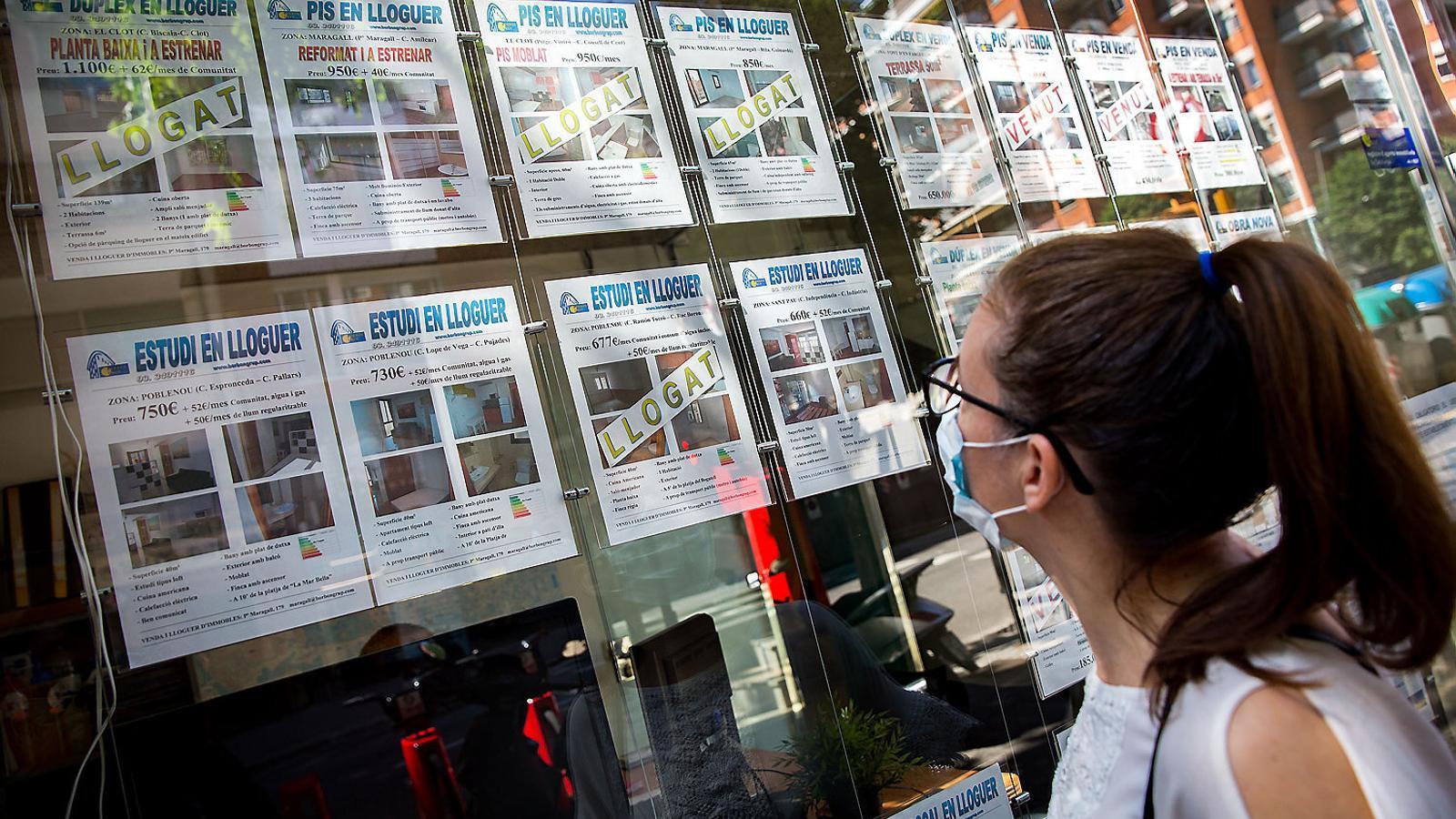The API regrets the unfair reputational damage and that Catalonia is "a legislative laboratory"
The group's new president, Montserrat Junyent, proposes a cross-party agreement to address "the lack of agreements" on housing.


BarcelonaThe new phase of the Association of Real Estate Agents of Catalonia (AIC) and the Official College of Real Estate Agents (COAPI), with the recent election of the jurist Montserrat Junyent As president, she has started with a major objective: to build a "common, stable, and realistic" strategy to address the housing crisis. "We are asking for a long-term vision," said Junyent—the first woman to lead the institution in its more than 75-year history—adding that they present themselves as "effective collaborators" and will strive to "convey data" in the debate. She outlined this on Thursday, accompanied by some members of her board, at a press conference, during which she also lamented the sector's current reputation: "The image being conveyed of the group is not the real one."
The main proposal of the new leadership of the association representing Catalan real estate agents—who mediate the process of buying and renting homes—is a "cross-cutting pact" with which, they say, they want to address the lack of political agreements on housing. And above all, to resolve what they consider to be leading to the collapse: an "almost obsessive" focus on issuing regulations. "When you convene meetings of 50 or 60 members, most of whom are from departments of the Generalitat (Catalan government), it's not representative. We are the ones who want to be consulted," said Joan Franquesa, first vice president of the COAPI (Official Association of Real Estate Agents) of Barcelona, regarding the Housing Advisory Council launched by the Catalan government. Junyent criticized the Catalan political class, accusing them of being too focused on parliamentary arithmetic. "We are against housing becoming an ideological tool, used as a political platform. Housing is a necessity, and we must address it regardless of the political aspirations of the parties," she said. The lawyer believes that these calculations are what have led Catalonia to become an "experimental legislative laboratory." Regarding the Catalan government's latest regulatory decision to analyze the prohibition of speculative housing purchases, Junyent admitted that they don't like it because "it's unclear." "We need to stop focusing on prohibitions and instead provide more guarantees," he said.
Tax incentives
Beyond construction, the medium- and long-term strategy advocated by real estate agents as the only way to resolve the housing crisis is tax incentives for landlords. Even so, they are also calling for an increase in the state budget allocation for this area. "I see the short term as bleak, very difficult to resolve. Anyone wanting to put a property on the market should be given the red carpet treatment," said Guifré Homedes, second vice president. The incentives that currently exist, such as tax breaks for landlords who lower rents—they can deduct up to 90% of the net rental income from their personal income tax—seem insufficient to them. "In a real estate transaction, for every euro generated, 30% is tax, taken by the public administration. There's a lot of room for improvement in tax measures: a reduced VAT rate for subsidized housing or a reduction in the property transfer tax (ITP), for example," said Franquesa. This, they say, is the way to prevent regulated rental properties from entering the unregulated market, seasonal and room rentals, or the sales market.
When asked if the group's image reflects the practices of some real estate agencies that have continued to charge tenants fees – as is the case with Alquiler Seguro, whom the Spanish government wants to fine 3.6 million euros– or that they have sought to exploit loopholes to raise rents through means where there is no legal consensus – such as the impact on the price of the accumulated CPI or of property tax (IBI)Junyent stated that they are not responsible for these housing access problems. In this regard, he attributed these practices to internal changes in the sector's operations. "Often, accusations against real estate agents are made with a certain degree of impunity, and their reputation suffers. We carry this image of vague complaints that don't translate into reality. We are the easy target to blame, and the administration is happy with that," he added.
